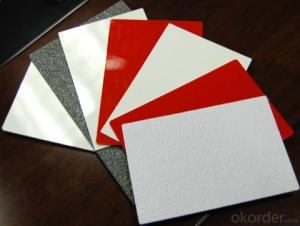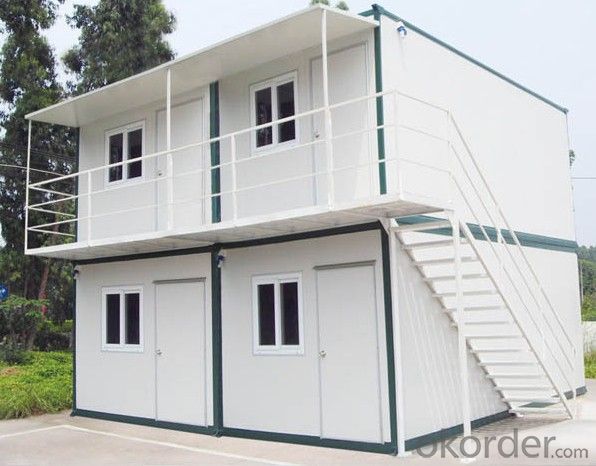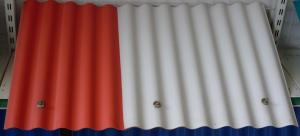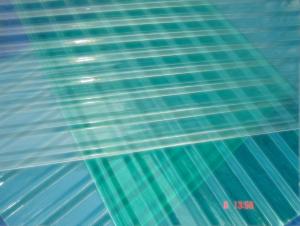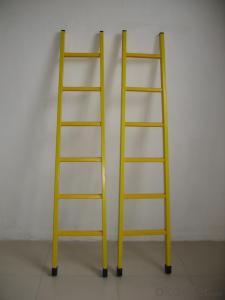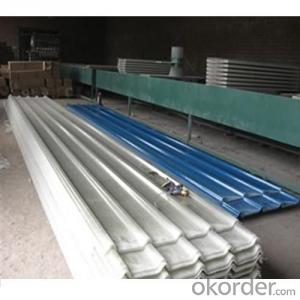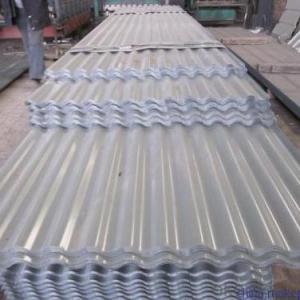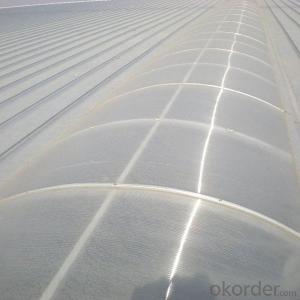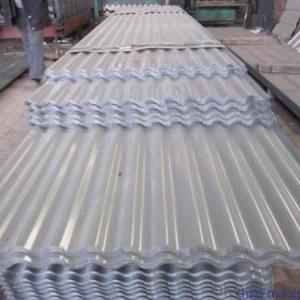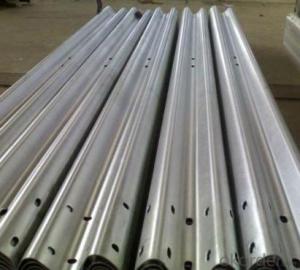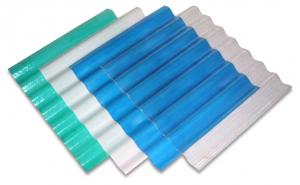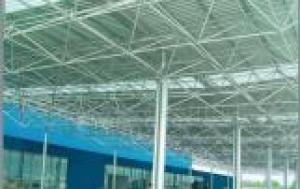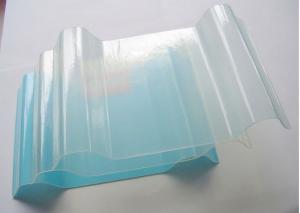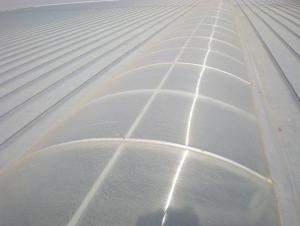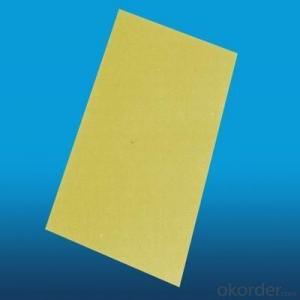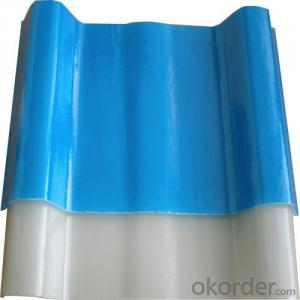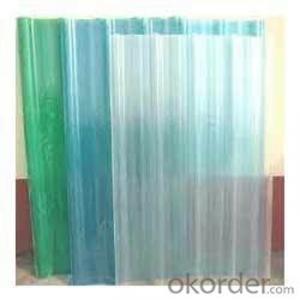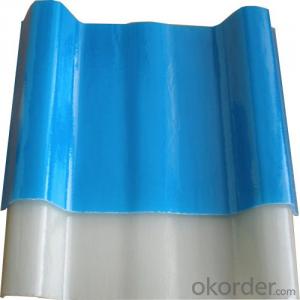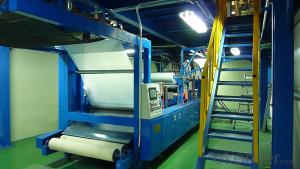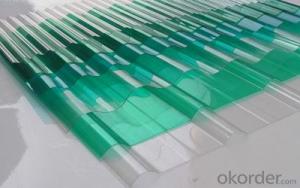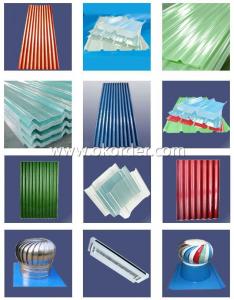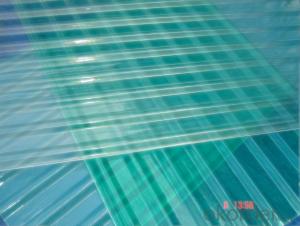FRP Decorative Roofing Panel
- Loading Port:
- Tianjin
- Payment Terms:
- TT OR LC
- Min Order Qty:
- -
- Supply Capability:
- 50000 m²/month
OKorder Service Pledge
OKorder Financial Service
You Might Also Like
1. Corrosion resistance
products are resistant to the corrosion of gas and liquid of acids, alkalis, salt, and organic solvent so that they can avoid the problem of rusting steel and rotten wood.
2. Light weight and high intensity
fiberglass products are molded through the solidification of fiberglass and resin under high temperature. Its density is only one quarter of that of steel, and two-thirds of that of aluminum. But its intensity is ten times that of PVC, exceeding the aluminum products and reaching the level of common carbon steel. Due to its light weight, the products require less base support and possess the features of easy installation and low costs.
3. Inflaming Retarding
The common oxygen index of common fiberglass products is above 32 (according to GB8924). By design, the flame spreading index of the high inflaming retarding ethylene products is below 10, which meets the requirements of engineering fire resistance for safety.
4. Collision Resistance and Fatigue Resistance
fiberglass products can resist collision and keep the original shape after repeated bending so as to be used as spring.
5. Age Resistance
The normal longevity is more than 20 years. The research result shows that the intensity will still retain more than 85% after 20 years’ exposure to the atmosphere.
6.Good appearance and Easy Maintenance
The color slurry offiberglass products is mixed with resin to make the color bright and difficult to fade. No painting is needed on the surface which is clean after washing.
- Q: Can FRP roofing panels be curved or molded?
- Yes, FRP (Fiberglass Reinforced Plastic) roofing panels can be curved or molded to fit different architectural designs and shapes. The flexibility of FRP allows for customization and versatility in roofing applications, enabling the creation of curved or molded panels to meet specific project requirements.
- Q: Do FRP roofing panels require any special flashing or trim?
- Yes, FRP (Fiberglass Reinforced Plastic) roofing panels do require special flashing and trim. These panels are lightweight and flexible, so proper flashing and trim are crucial to ensure a watertight and secure installation. Specialized flashing and trim components designed for FRP panels are necessary to provide proper sealing, prevent water infiltration, and protect against potential damage or leakage.
- Q: Are FRP roofing panels available in different profiles?
- Yes, FRP roofing panels are available in different profiles.
- Q: Can FRP roofing panels be customized in terms of color and design?
- Yes, FRP (Fiberglass Reinforced Plastic) roofing panels can be customized in terms of color and design. These panels can be manufactured in a wide variety of colors to suit individual preferences and match the aesthetic requirements of different projects. Additionally, FRP panels can be designed with various patterns, textures, and finishes to achieve the desired visual effect. This customization allows for greater flexibility and creativity in architectural design, making FRP roofing panels a popular choice for both residential and commercial applications.
- Q: Can FRP roofing panels be used in areas with high levels of industrial emissions?
- FRP roofing panels are generally suitable for use in areas with high levels of industrial emissions. These panels are renowned for their durability and resistance to various chemicals, making them well-suited for harsh environments, including those with industrial emissions. However, it is crucial to take into account the specific type and concentration of industrial emissions in the area. Certain emissions, such as acidic gases or corrosive particles, may necessitate additional protective coatings or special formulations of FRP to ensure long-lasting performance. Consulting with FRP manufacturers or technical experts is also advisable. They can provide tailored guidance based on the nature of the industrial emissions and the intended use of the FRP roofing panels. Furthermore, regular maintenance and inspections should be carried out to evaluate any potential degradation or damage caused by the industrial emissions, ensuring the continuous effectiveness of the FRP roofing system.
- Q: Are FRP roofing panels resistant to insects?
- Yes, FRP (Fiberglass Reinforced Plastic) roofing panels are generally resistant to insects. The composition of FRP panels, which typically consist of a fiberglass mat embedded in a polymer resin, creates a surface that insects find unappealing. Unlike traditional roofing materials such as wood, which can be susceptible to insect infestations, FRP panels do not provide a food source or a suitable habitat for insects. This makes FRP roofing panels highly resistant to damage or degradation caused by insects, ensuring the longevity and durability of the roofing system. However, it is important to note that while FRP panels are resistant to insects, they are not completely impervious. In extremely rare cases, certain types of insects with specialized feeding habits or aggressive behaviors may still be capable of causing minor damage to FRP panels. In such cases, timely inspections and appropriate pest control measures should be taken to prevent any potential issues.
- Q: Can FRP roofing panels be used for flat roofs?
- Yes, FRP (Fiberglass Reinforced Plastic) roofing panels can be used for flat roofs. FRP panels are known for their durability, lightweight construction, and resistance to corrosion, which makes them suitable for a variety of applications, including flat roofs. They offer excellent weather resistance and can withstand harsh environmental conditions. Additionally, FRP panels are easy to install and maintain, making them a popular choice for flat roofs. However, it is important to consult with a professional roofer or contractor to ensure that the FRP panels are installed correctly and meet the specific requirements of your flat roof.
- Q: Can FRP roofing panels be used in data centers or server rooms?
- Yes, FRP (Fiberglass Reinforced Plastic) roofing panels can be used in data centers or server rooms. FRP panels are highly durable, lightweight, and resistant to corrosion, making them suitable for use in these environments. They offer excellent thermal insulation properties and can withstand high temperatures and humidity levels, which are common in data centers and server rooms. Additionally, FRP panels are easy to install and maintain, making them a practical choice for such applications.
- Q: Can FRP roofing panels be used in curved or sloped roofs?
- Yes, FRP roofing panels can be used in curved or sloped roofs. These panels are flexible and can easily be moulded or bent to fit the shape of the roof, making them suitable for various architectural designs and applications.
- Q: Can FRP roofing panels be used for residential garages?
- Certainly, residential garages can utilize FRP (Fiberglass Reinforced Plastic) roofing panels. Renowned for their durability, lightweight composition, and ability to withstand various weather conditions, FRP panels are an ideal choice. These panels are crafted to endure sunlight, rain, snow, and even hail. Furthermore, FRP panels provide exceptional insulation, minimizing heat transfer and promoting energy efficiency. Their straightforward installation process makes them a favored option for DIY enthusiasts. Nevertheless, it is imperative to ensure the correct installation and sealing of FRP panels to prevent potential leaks. It is also advisable to consult a professional or follow manufacturer guidelines to determine the appropriate panel thickness and structural prerequisites for your specific garage.
Send your message to us
FRP Decorative Roofing Panel
- Loading Port:
- Tianjin
- Payment Terms:
- TT OR LC
- Min Order Qty:
- -
- Supply Capability:
- 50000 m²/month
OKorder Service Pledge
OKorder Financial Service
Similar products
Hot products
Hot Searches
Related keywords
